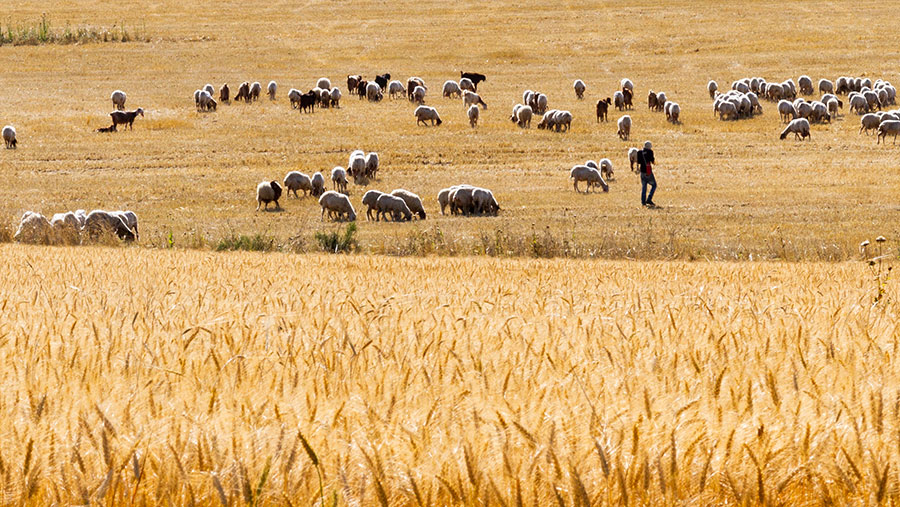Calls for more council-owned farms amid sell-off backlash
 © Adobe Stock
© Adobe Stock A push to increase the number of council-owned farms in England is stepping up a gear amid a backlash against further sell-offs.
CPRE, the countryside charity, believes there is a positive future for local authority-owned farms and says it plans to launch its vision for them as early as next month.
Since early 2020, the organisation has worked to raise awareness of the continuing loss of publicly owned farmland and to promote its long-term future.
See also: Scrutiny demanded as councils continue to sell farms estate
It has done this in conjunction with the New Economics Foundation and Shared Assets, an organisation that supports the development of new models of managing land.
In a new joint report setting out their vision for council farms until 2040, they will make the case for local authorities to work in a “more intelligent way” with their farms to create a more stable financial investment for the council and a better future for farmers.
Wider role for county farms
This might involve greater use of regenerative farming practices to restore nature and tackle climate change, diversification opportunities such as care or therapy farming, local food provision and wider public access.
“We want councils to look afresh at what they can do in light of the challenges to nature and the environment as well as their budgets,” said CPRE’s lead on farming, Graeme Willis.
Cheshire West and Chester Council to review sell-off policy
A council that intended to sell off its entire portfolio of farms is reviewing that policy.
Cheshire West and Chester Council owned 47 farms when, in 2011, it announced its decision to sell these as they became vacant.
It now owns just 18, covering 2,000 acres, with 13 of these let as lifetime or retirement tenancies under the Agricultural Holidays Act 1986 and five under farm business tenancies.
The Tenant Farmers’ Association (TFA) says the sell-off policy is now under review.
That review will consider the role that the remaining farms can play in contributing to achieving the wider social, environmental and economic objectives of the council.
TFA chief executive George Dunn says this was the very case that his organisation had made for the retention of the farms that had since been sold.
“We have always said that there are wider environmental and social benefits of council farms, whether that is in renewable energy opportunities, carbon offsetting, biodiversity – they tick a number of boxes, aside from the opportunities they can offer people who want to start out in farming,” he said.
“Councils that still have farmland estates must bear this in mind as these issues are going to be more important in the next decade.”
“Council land is different from land in private ownership and for that reason councils must recognise the value of their farms beyond the cash value before it is too late.”
Mr Willis describes council farmland as one of the most rock-solid, long-term financial investments for the public sector.
It is also an asset and its potential for wider public value needed to be considered before any sales for short-term budgetary gains, he added.
“This land has been in public trust for 100-plus years, yet could be sold off completely in a generation, it is a tragedy.
“Land is very easy for councils to sell, yet very hard to acquire.”
Call for better new entrant support
Mr Willis says the report will also put the case for councils to do a better job of supporting new entrants.
“Land can do a whole range of different things, but farmers need to make a decent living from it too,” he adds.
CPRE’s research shows that although two-thirds of all councils were selling land, another one-third – notably in Cambridgeshire and Norfolk – were still acquiring land.
The organisation is keen to hear from tenants interested in being a case study to help showcase the importance of council farms and their value to farming and the local area.
Tenants who would like to be involved should email Mr Willis for an initial chat at graemew@cpre.org.uk.
